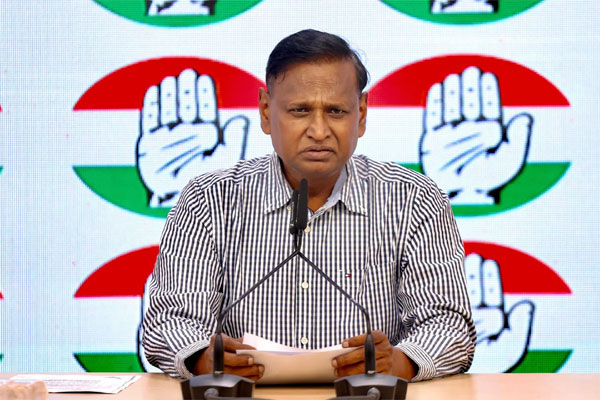Daijiworld Media Network - New Delhi
New Delhi, Oct 7: A day after a dramatic disruption inside the Supreme Court, senior Congress leader Udit Raj ignited a political firestorm by attributing the incident to the growing influence of Sanatan Dharma ideology, alleging it fuels extremist behavior.
The controversy erupted after senior advocate Rakesh Kishore attempted to interrupt proceedings before a Bench led by Chief Justice of India B.R. Gavai on Monday. Kishore allegedly tried to throw an object — believed to be a shoe — at the CJI and shouted slogans defending Sanatan Dharma before being swiftly removed by court security.
Reacting strongly, Udit Raj told reporters that such incidents are not isolated. “Leadership influences behavior. Day and night, television debates are dominated by talk of 'Sanatan.' This constant drumbeat is shaping public sentiment,” he said.

He went further, linking past acts of violence to Sanatan Dharma followers. “Godse was a Sanatani. Those who want a Hindu Rashtra are Sanatanis. Gauri Lankesh was killed by Sanatanis. Even this lawyer in the Supreme Court — another Sanatani,” he claimed, listing what he described as a pattern of extremism associated with the ideology.
The Congress leader also drew parallels with Pakistan, arguing that if religious leaders had played a more central role in Indian governance post-independence, the country would be worse off. “Pakistan has one religion that holds it together. Imagine if our 'Babas' had been allowed into governance — India would have crumbled. Look at what happened to the Dalit youth in Raebareli — that was also at the hands of goons tied to a ‘Baba’,” he said.
The Supreme Court incident added fuel to recent controversy surrounding CJI Gavai, who faced backlash weeks earlier for telling a petitioner to “go and ask the deity itself” during a hearing on restoring a damaged Vishnu idol in Madhya Pradesh's Khajuraho temple complex.
Despite being detained, Rakesh Kishore remained unapologetic. “I said it in court, and I will say it again — India will not tolerate the insult of Sanatan Dharma,” he told reporters.
As political tensions flare, the episode raises deeper questions about freedom of expression, the intersection of faith and judiciary, and the polarised ideological climate currently shaping India's public discourse.